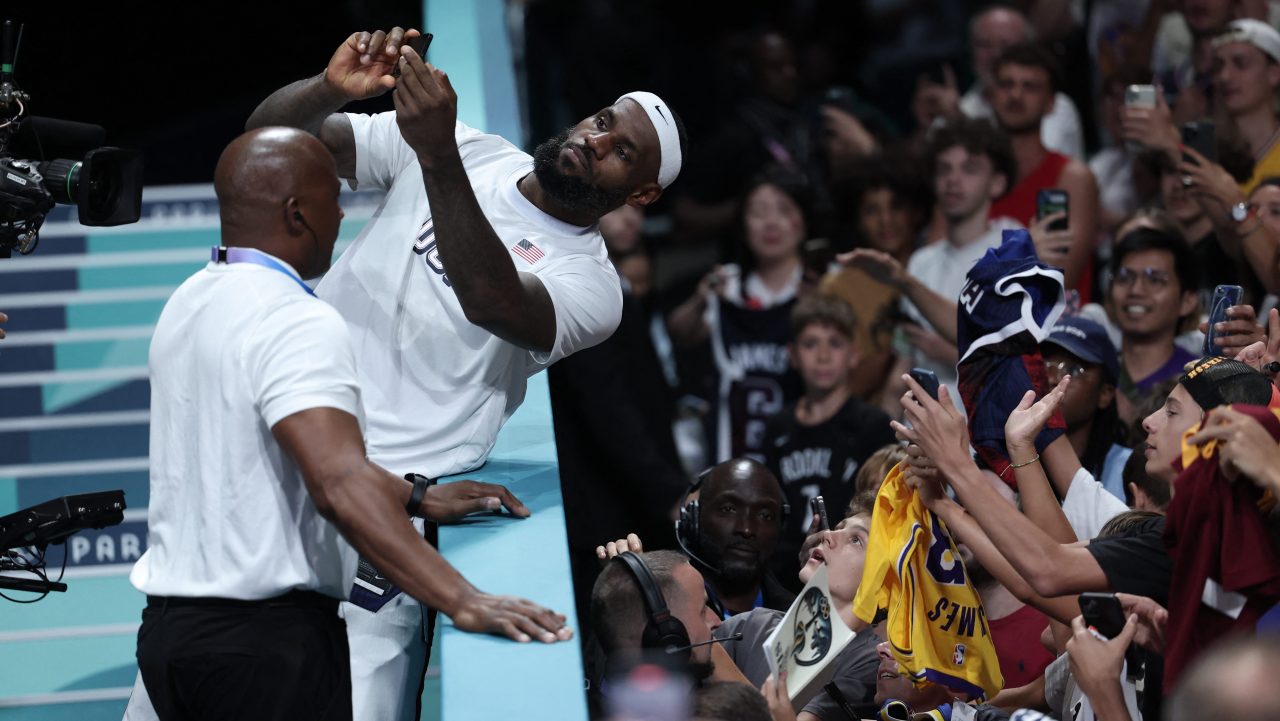
UPDATE: On Friday, Jan. 17, the Supreme Court upheld the law that will ban TikTok on Jan. 19 unless its U.S. operations are sold. Previously, TikTok said it would shut the app down rather than find a buyer, though it plans to retain employees for the time being, as uncertainty remains over how President-elect Donald Trump’s administration will enforce the action.
***
TikTok is now days away from an effective ban in the United States, but on the pages of sports’ biggest accounts, it’s business as usual.
ESPN, which has the largest brand following on the platform (50 million), posted more than two dozen clips Monday. The NBA, with the largest presence of any sport league (23 million followers), is continuing to add content too. As is youth-focused sports media company Overtime, speaking to its 28 million followers.
A ban is set to go into effect on Sunday, following a U.S. law that cited national security and personal data risks tied to the popular media service—which has 170 million American users—being owned by China-based ByteDance.
It’s still unclear what exactly will happen Sunday, whether the platform will be made wholly unavailable or whether it will just degrade in accessibility and functioning over time. That uncertainty, along with the dedicated audience that remains for now, has kept major posters active for the time being.
If and when TikTok no longer commands 90 minutes of the average U.S. teenager’s day, Dallas Mavericks owner Mark Cuban feels confident fans can “also find the same league content elsewhere,” he said via email. What will the impact be on sports as a whole? “Nothing,” he wrote.
Overtime execs also feel prepared. “Overtime has always been all in on Instagram, YouTube, Snap, Facebook and X, while experimenting with new platforms as well,” CEO Dan Porter said in a statement to Sportico.
The truth is, social media’s landscape is constantly changing; TikTok disappearing would just be the latest swerve. Content producers react to platforms adding new tools and making subtle tweaks to their recommendation engines on a daily basis.
“I don’t think it changes, really, our operating cadence,” said Rob DeChiaro, the president of Skratch, a digital golf brand originally created by the PGA Tour. “We have to constantly sit here on a Monday morning, on a Tuesday morning, on any morning, and say, ‘All right, what’s going on now?’”
Individual creators likely have more at risk.
“I don’t think all the other apps are similar enough to be substitutes,” women’s sports-focused personality Coach Jackie J said in a recent TikTok video, even as she implored followers to find her elsewhere. “The algorithms are so different…”
TikTok and its representatives have made similar arguments in court. Surely other social apps would have already replicated the service’s recommendation engine and community features if it were only so easy. As the Mark Zuckerberg character says in The Social Network, “If you guys were the inventors of Facebook, you’d have invented Facebook.”
Jackie breaks down women’s basketball topics and news on emerging leagues like the PWHL and LOVB for more than 500,000 followers on TikTok and less than 10,000 on Instagram.
“Content creators who make a living (on TikTok),” Cuban said, “they would have a right to be angry.”
The same goes for up-and-coming athletes or even nascent sports leagues that can benefit from TikTok’s ability to deliver massive audiences overnight—a viral affinity engine that hasn’t been matched elsewhere.
In recent years, media companies, leagues and advertisers have turned to creators to reach young fans. Some teams even use the platform and its famous personalities to sell tickets. As those personalities look to regain their audiences on other platforms, however, they could be increasingly reliant on more traditional entities for the clout, access and distribution necessary to re-establish their own stardom.
For now, most are experimenting on other sites, but also continuing to post on the endangered platform. There is still uncertainty around how long a ban would last, anyway. President-elect Donald Trump has signaled his desire to remedy the situation by finding an American buyer for the company (though ByteDance has not shown interest in selling its U.S. operation), and reports this week suggest Elon Musk could be among the bidders. Brands such as the NBA have also increasingly invested in their own apps as distribution tools.
“The agenda might switch in two days,” DeChiaro said. “And that’s fine, and that’s great, and we’ll figure it out from there.”

